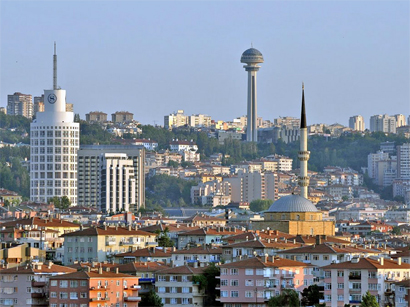Senior officials from the Kurdistan Regional Government (KRG) are expected to pay a visit to Turkey July 14 to receive the sale revenues from oil exports, Hurriyet Daily News reported.
KRG Deputy Prime Minister Qubad Talabani, Finance Minister Rebaz Mohammad and Energy Minister Ashti Hawrami will sign a document which will allow the revenues to be transferred from its account at Turkey's Halkbank to the Kurdish administration, Kurdish media outlet Rudaw has reported. According to the agreement between the bank and the administration, four signatories were needed for the transfer to be completed. The region's Prime Minister Nechirvan Barzani reportedly signed the document when he visited Turkey recently.
Turkish Energy Minister Taner Yildiz said late last month that the first payment of $93 million for KRG oil sales had been received by Halkbank. The Kurdish administration currently exports between 100,000 to 120,000 oil barrels per day and is expected to reach 400,000 oil barrels per day by the end of 2014. The KRG began independent exports in May from its pipeline to Turkey, which by-passes Baghdad's system. So far, three tankers have loaded that oil.
For years, the KRG and Baghdad have been locked in a struggle over how to divide the country's oil revenue and budget. Baghdad opposes independent Kurdish oil exports and says all marketing must go through the state entity State Oil Marketing Organization (SOMO).
The divisions have significantly eroded trust and Hawrami said the central government had withheld budget payments to the region so far this year and before that was only giving around 10 percent of the revenue, instead of the agreed 17 percent.
Meanwhile, Iraq's deadlocked Parliament July 13 ended its second session after just 30 minutes without making any progress toward forming a new government. The legislature is under pressure to quickly choose a new parliamentary speaker, president and prime minister - the first steps toward a new government. Hopes had been raised that lawmakers might at least vote on a parliamentary speaker after Sunni blocs announced they had agreed on a candidate for the post, Salim al-Jubouri.
But acting parliamentary speaker Mahdi al-Hafidh ended yesterday's brief meeting "due to the absence of any agreement on the nominees for the three posts." He scheduled the next session for tomorrow.
Under an informal arrangement that took hold after the 2003 U.S.-led invasion, the speaker's chair goes to a Sunni, the presidency to a Kurd and the prime minister's post to a Shiite. In the past, Iraq's Shiite, Sunni and Kurdish political blocs agreed to all three posts ahead of time as a sort of package deal. According to the Constitution, Parliament will have 30 days after choosing a new speaker to elect a president, who will then have 15 days to ask the leader of the majority in the 328-seat legislature to form a government, after which the prime minister is elected.






